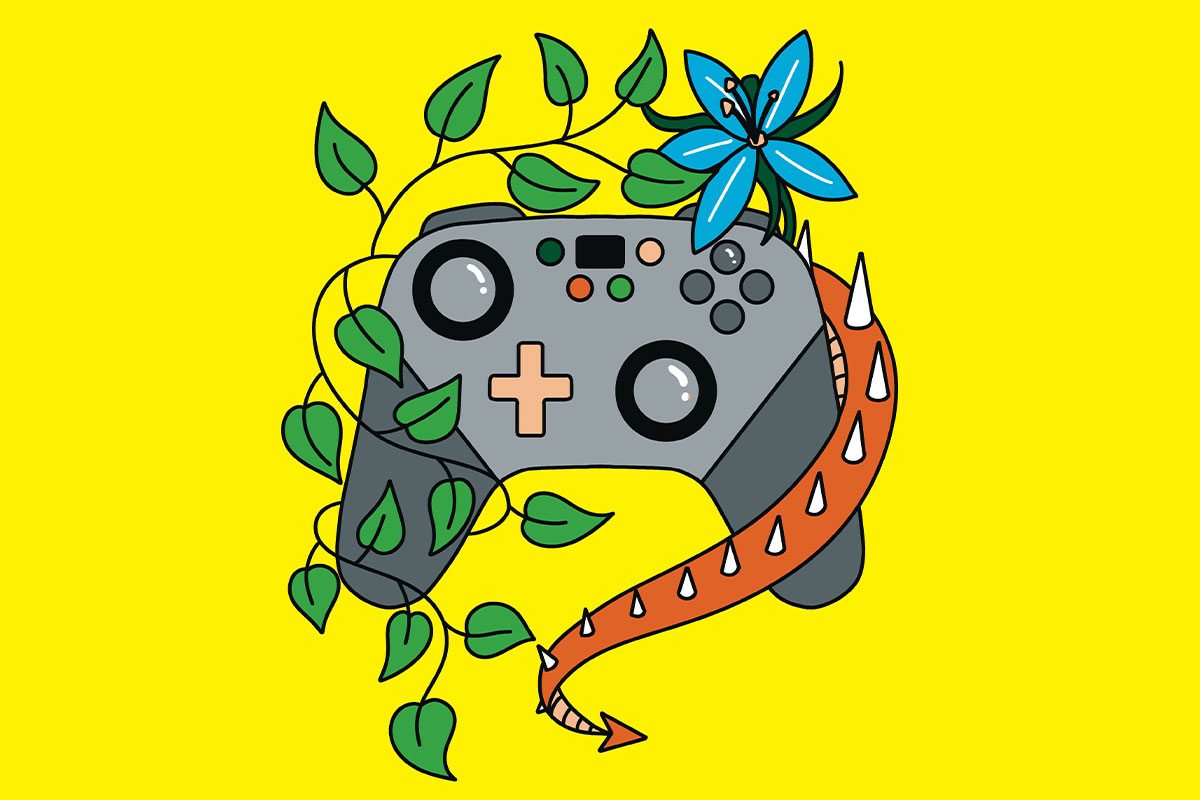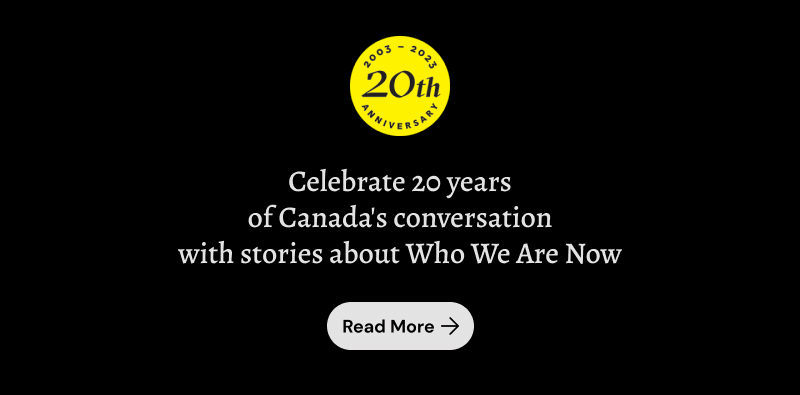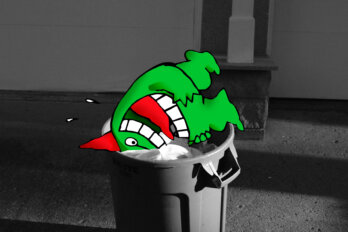After a long, arduous climb, I reached the summit. Breath streamed from my mouth, twisting into the thin mountain air. Two birds circled not far off, and I set my hands on my hips to take in the landscape unfurling before me. An active volcano coughed up ash in the far distance.
Here at the summit, I experienced a profound sense of connection—of being part of a vast and complex whole. There’s a term for this feeling: awe. And a number of studies have explored just how essential awe is to our well-being and how it correlates to our creativity and physical health.
But there’s one problem. This mountain climb happened in one of the most beloved games of all time, The Legend of Zelda: Breath of the Wild. Which means that this vast world I’m connecting with is only a digital simulation.
And the weird thing is I shouldn’t even be here. I’m not a gamer; I’m a lover of actual nature. Though I logged some serious screen time on the Super Nintendo as a kid, I was more interested in worlds made of words. And today, as a parent of two children, I’m wary of the seduction of these games, especially how they compel players to squander oceans of time in order to achieve goals that hold no real-world meaning.
But, for me, Breath of the Wild is different.
I first played it with my sons and then, after they went to bed, alone, obsessively, deep into the night. How did this particular game sink its hooks into me so deeply when so many others had failed?
The Kingdom of Hyrule, the game’s vast digital terrain, is estimated to be as large as 86 square kilometres in our-world measurements, according to one fan’s calculations. It has fifteen distinct regions, each with a unique climate, weather, flora, fauna, and history. A player’s time is spent exploring these regions, meeting inhabitants, facing down dangers, and unlocking rewards and secrets. But the real star here is the land itself. The wild.
A misty jungle. A lazy fishing village. Ancient trees that seem like they’ve been around since time began. Sheer cliffs and boiling rivers of magma. Cozy mountain cabins with fires burning in the hearth. Drenching thunderstorms that sweep across the plains and deliver spectacular lightning strikes. Hilltops where pink blossoms drift in the air like snow. Frigid snowy expanses—where, if you’re lucky, you might see the northern lights. And peaceful woodlands that teem with deer and foxes that peruse the understory for food.
More than I wanted to play the game, I wanted to be there. In Hyrule. In the wild. Though at times fearsome, it’s an oddly comforting place. If you get cold, you can don a warm article of clothing. If your health meter dips, you cook up some food you’ve hunted or collected. The first time I glimpsed one of its three mythical dragons winding lazily in the distance—about which the game had offered no explanation—I experienced a sensation of pure, unbridled joy.
But the skeptic in me wonders: Is the in-game awe you feel legitimate? Can a digital simulation of a natural environment serve as a substitute for the real one? And is this feeling of awe comparable to what you experience while walking through a stand of BC’s gorgeous old growth—or after reaching the summit of a real hike, when the land and water splay out wonderfully before you?
To this, my only answer is another question: Can’t I enjoy Hyrule too? We feel awe in many non-natural contexts, but especially when experiencing a work of art—reading a great book or hearing great music. Like Hyrule, a piece of art is its own little world, one that conjures the feeling that everything is as it should be, with nothing wasted and nothing missing.
Gazing out over Hyrule, marvelling at its complexity and simplicity, I try not to feel guilty for spending so much time here. And when its long-awaited sequel drops in May, I’ll be begging my kids for the controller.







